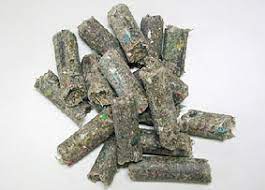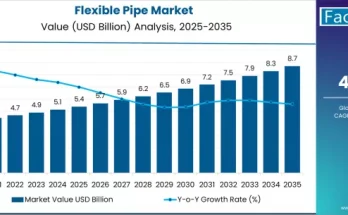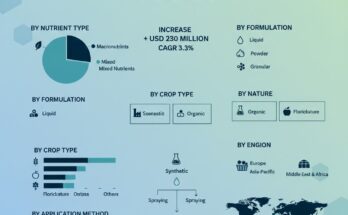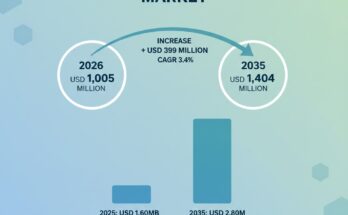The impact of the COVID-19 outbreak has forced many manufacturers and industries to reconsider their operations to gradually recover from losses they will incur over the next few years. The organic chemical industry suffered major setbacks due to production cessation and restrictions on the supply of raw materials.
This report provides actionable and valuable market insights for Refuse Derived Fuel. The latest report from Fact.MR provides details on the current market scenario in various regions along with historical data and forecasts of the market. The report also includes information on sales and demand of the Waste Derived Fuels market across various industries and regions.
Request a sample to stay ‘ahead’ your competitors – https://www.factmr.com/connectus/sample?flag=S&rep_id=1461
Key Takeaways from Market Study
- The global market is expected to grow 1.4X in value by the end of 2031
- Europe is anticipated to be a presiding region and this regional market is expected to progress at a CAGR of over 3% through 2031.
- Considering the types of fuel, low grade (<10 Mj/kg) is anticipated to gain 319 BPS through the forecast period.
- Cement kiln, under refuse-derived fuel application, captures a larger chunk of the market share and is expected to progress at a CAGR of close to 4% over the next ten years.
- The market in the United Kingdom is anticipated to gain 217 BPS and expand at a CAGR of close to 4% through 2031.
Key Market Segments Covered in Report
-
Fuel Type
- High Grade (>10 Mj/kg) Refuse-derived Fuel
- Low Grade (<10 Mj/kg) Refuse-derived Fuel
-
Application
- Refuse-derived Fuel for Cement Kilns
- Refuse-derived Fuel for Co-Combustion
- Gasification of Refuse-derived Fuel
- Refuse-derived Fuel for CHP
- Others
-
Region
- North America
- Latin America
- Europe
- Japan
- APEJ
- Middle East & Africa
Triumphant Strategies
Key actors in the market are using the organic approach to take advantage of the opportunities on offer by investing in research & development of new technologies. The future objectives of economies across the world are to develop alternatives for non-renewable sources and make use of waste to produce chemicals.
Market players in the European region are focusing on strengthening their position owing to the legislations being in favor and availability of technological vigor. Some players are inclining their interests to adopt strategies such as forming joint ventures and collaboration to increase their revenue generation capacity and involvement in the global value chain.



